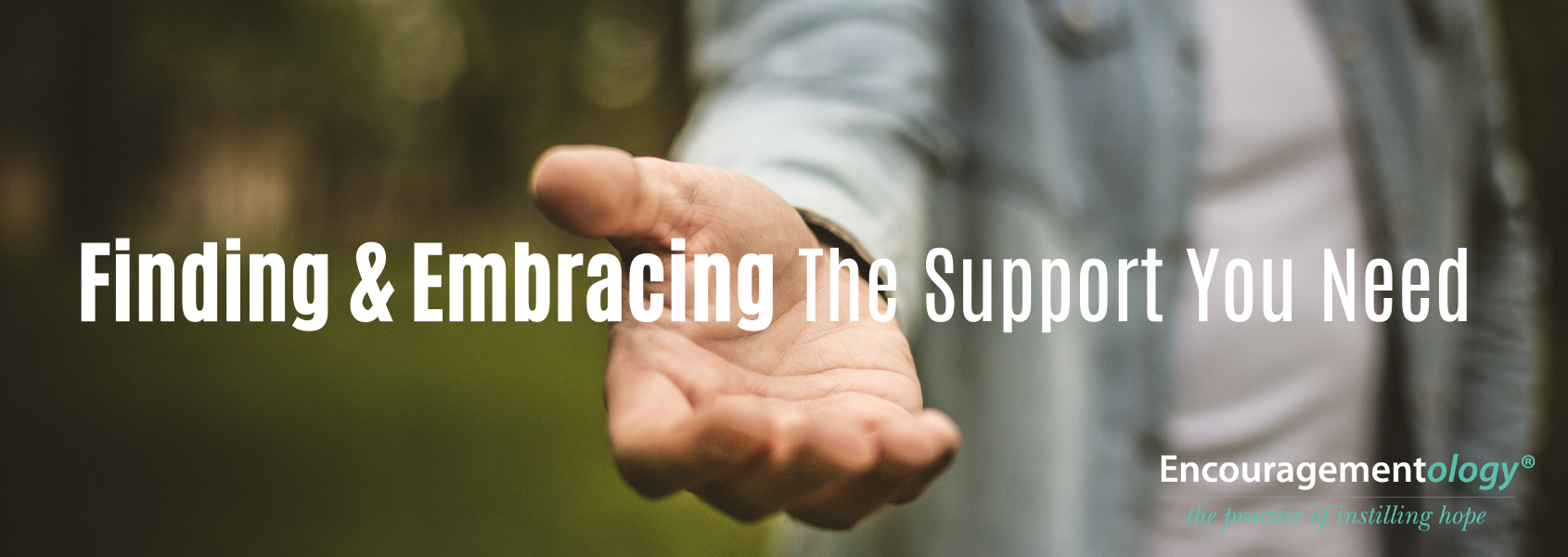SHOW NOTES:
On this show, we talked about support; understanding when you need it, recognizing when you can offer it, and being open enough to embrace it all. Many believe we have the power to manage our lives and our emotions very logically and systematically. The more you put it the more the payoff. You work hard and you get a big reward. Then life throws you a curveball, something you never saw coming, and you realize, no amount of preparation or sweat equity could help you easily turn this thing around. You need help. Admitting that is the most important step and definitely the hardest one. You feel like a failure because you weren’t able to manage life’s ups & downs on your own. In your mind, you are the only one who waved the white flag.
Recognizing you need help comes from being honest with yourself and in honesty, understanding your limitations. These could be physical limitations or emotional and they might be so closely intertwined that you can’t recognize the difference.
Stress happens. In fact, stress is perfectly normal and, in some cases, even beneficial.
John Rampton talks about 4 ways to deal with the stress of being overwhelmed without shutting down in an article for Entrepreneur.
John covers the effects of chronic stress and 4 ways to work through it.
- Remember: This too shall pass.
- Increase oxygen flow.
- Prioritize and delegate.
- Shift your focus.
Whether you’re afraid someone will laugh at you for being incompetent, or you just can’t admit to yourself that you don’t have it all handled, asking for help can be hard. It can be embarrassing, too—especially if you feel like everyone else is keeping up and you’re the only one falling behind.
Whether you’re embarrassed to talk to your doctor about your depression, or you’re scared to tell your boss you don’t understand a project, the longer you put off asking for help, the worse your problem may become.
- Admitting you need help is a sign of strength, not weakness.
- Getting help can save you a lot of time and aggravation.
- Seeking assistance gives others an opportunity to serve you.
- You aren’t the only one struggling.
- Asking for help can make you more comfortable in your own skin.
I talk about my own experience with support groups and starting my own over two years ago: …Sharing your struggles is a way to receive support without directly asking for help. It gives you a chance to connect and bond in experience and understanding with people you might have no other reason to connect with. When we keep our experiences and our feelings about those negative or positive to ourselves, we tend to blur, exaggerate, add grandeur, or downplay what actually happened. These memories play over and over again in your mind and it’s natural that some facts could get forgotten or rosier endings are added. Giving an account to another trusted individual and help you work through these memories with accuracy which could, in turn, help you categorize these experiences differently.
But what if, despite what everyone says, you still feel alone? Well, I found 11 Things to Do When You Feel Like You Don’t Have Anybody by Sarah Schuster for The Mighty.
- Find a Facebook group for people who share a common interest.
- Turn to a pet or spend time with animals.
- Join a book club.
- Find a support group.
- Meet up with people through Meetup.
- Start volunteering.
- Find a buddy through The Buddy Project
- Connect with someone on 7 Cups.
- If you’re on Twitter, check out supportive mental health hashtags.
- Use The Mighty’s #CheckInWithMe hashtag.
- Be your own best advocate.
Whether it’s emotional, physical, financial, or spiritual, ask. You don’t have to dream up an elaborate excuse to justify your needs. Be specific with your ask. Life is about give and take and each of use will give and reciprocate at one point or another.
CHALLENGE: Don’t try to go it alone. Life is challenging and help is just an ask away. Be willing to embrace love and support as you would give the same. Share with another person to create a strong and encouraging network.
I Know YOU Can Do It!

